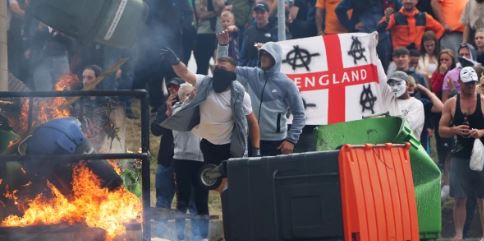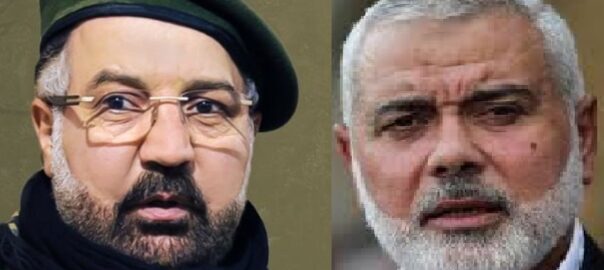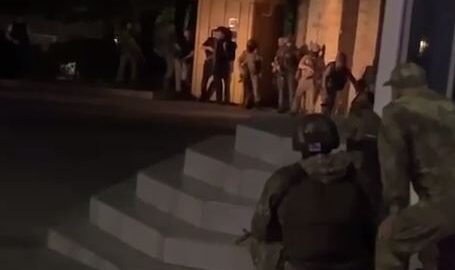La questione del genere nei processi di radicalizzazione ed estremismo è un tema che sta emergendo come sempre più interessante sia per gli aspetti sociali che evidenzia sia per quelli legati all’ambito della sicurezza.
Continue readingTargeted killings by Israel: Terrorise the terrorists – by Maria Alvanou
In the early 60s in Greece, during turbulent and violent political times, the iconic political figure George Papandreou, known in history as the “Elder of Democracy” uttered the phrase: “terrorize terrorists”. The phrase indicated the way to react against those causing fear in society with forms of political violence.
Continue readingSPOTREP: The sabotage campaign in Lebanon. The weaponization of dual-use tools – by Emilio Palmieri
WHAT WE KNOW
In the afternoon of September 17, 2024, hundreds of pagers used by individuals linked to the Iranian proxy armed group Hezbollah simultaneously exploded in several cities in Lebanon.
Continue readingI Tuareg non sono jihadisti – by Marco Lombardi
In questi giorni si parla molto del sostegno dell’Ucraina e della Francia ai gruppi jihadisti in Mali e dintorni. Diversi quotidiani italiani hanno rilanciato queste narrative.
Continue readingSouthport stabbings and riots in the UK: Comments from a security perspective – by Maria Chr. Alvanou
On Monday 29th of July a knife rampage described as a “horror movie” took place in Southport, UK, during a Taylor Swift-themed dance class resulting in three little girls stabbed to death and eight others injured. The perpetrator was a 17-year-old boy arrested at the scene, and his motivations seem irrelevant to terrorism.
Continue readingIsraele decapita in poche ore Hamas e Hezbollah e umilia le difese iraniane. Ora si attende la reazione di Teheran – by Giovanni Giacalone
La macchina militare israeliana si è messa in moto e stavolta i colpi inflitti sono durissimi. In meno di 72 ore l’IDF ha eliminato a Beirut il numero due di Hezbollah, Fuad Shukr e a Teheran il leader del bureau politico di Hamas, Ismail Haniyeh.
Continue readingThe Attack Against Donald Trump: Hate Narratives, the Shooter, and Security Gaps – by Maria Chr. Alvanou
The attack against President Trump has brought to the surface once again the issue of political assassinations. The United States of America is not immune as a country to such events in its political history.
Continue readingParis Olympic security threats: Why the Islamist terror network and Hamas matter – by Maria Alvanou
The world’s eyes in about a month will be on France hosting the Paris 2024 Olympic Games. Major athletic events should always be considered a possible target for terrorists and a challenge for law enforcement authorities that have to safeguard security, making sure at the same time that people can enjoy participating with a festive spirit.
Continue readingThe role of local journalism between the need for security and new crises – by Giacomo Buoncompagni
Recent national and international emergencies, from pandemics to the recent floods, have repeatedly highlighted how the role of local information must be to synthesise the various social and cultural policies proposed by public bodies and the correct representation – the state of life of citizens in the territory – beyond national media logics, often based on speed and the spectacularisation of disasters.
Continue readingFrom Heroes to Targets: The Dual Impact of MMA in the Caucasus Region. Investigating the MMA-Terror Nexus– by F. Borgonovo and G. Porrino
Mixed Martial Arts (MMA) has become a prominent sport in Russia, with a fervent following in the Caucasus region. This surge in popularity can be attributed to a blend of cultural heritage, historical precedence, and socio-economic factors that have made combat sports an integral part of Russian society. However, the rise of MMA has also brought about significant security challenges, with extremist groups exploiting the sport for recruitment and propaganda purposes.
Continue readingAttentati Daghestan 23 giugno 2024 – by Giovanni Giacalone
L’attentato islamista di domenica 23 giugno in Daghestan ha causato la morte di 15 appartenenti alle forze di sicurezza (Polizia e Guardia Nazionale), due civili (tra cui il sacerdote Nicolai Kotelnikov, sgozzato dai terroristi), oltre al ferimento di una trentina di persone.
Continue readingLa nuova strategia di Mosca in Libia: arrivano gli Afrika Corps – A. Bolpagni & G. Porrino
Mentre gli occhi del mondo sono concentrati sulla guerra in Ucraina e sul conflitto tra Israele e Hamas, la Russia sta riconsolidando la propria presenza in Libia, ponendo un’ulteriore minaccia al fianco sud della NATO. Nonostante la disfatta dell’alleato Generale K. Haftar nella battaglia di Tripoli nel 2020, la presenza russa è rimasta ben consolidata in relazione al più ampio progetto geopolitico di proiezione di potenza nel Sahel e nell’Africa sub-Sahariana.
Continue reading











